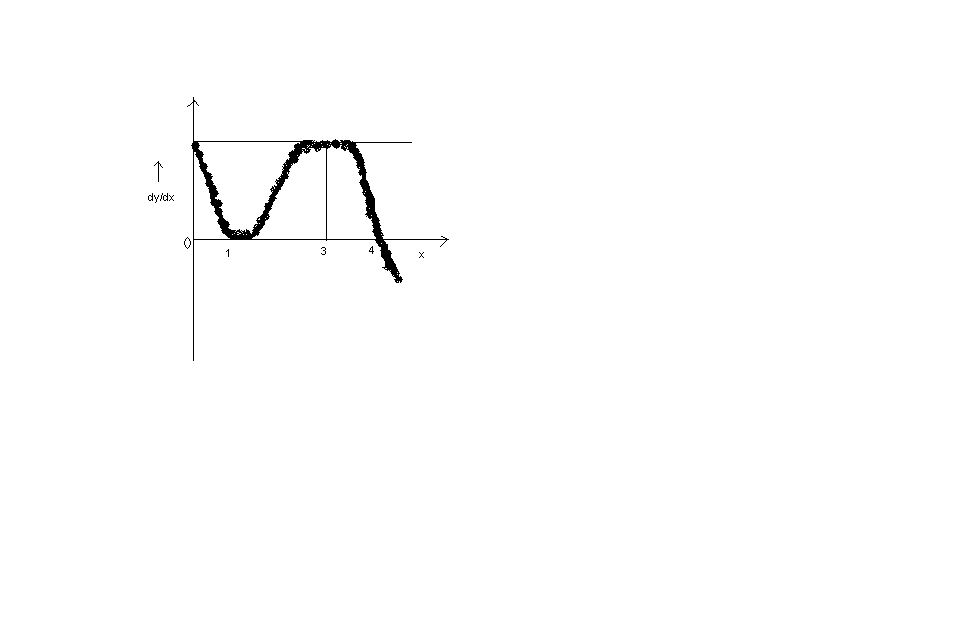achcha sorry forgotto mention f'(0)=f'(3)=4.....

The diagram shows the graph of the derivative of a function y=f(x) for 0<=x<=5 with f(0)=0.
∫f(x)dx= [limits from 0 to 1]
a.-21/20 b.21/20
c.-1 d.none of these
Sir u said option b or d must be correct out of d two options......because f'(x) is increasing.....but answer is (a)..so how to do this????
-
UP 0 DOWN 0 0 9

9 Answers
f(0) is 0, f'(x)≥0 for all x between 0 to 1. So f(x) is always non-negative in that interval. Then how can the integral be negative?
Hmmmm....dats wat i am not understanding the function is increasing one.....don't know where is d failasy??
at x=1,it is an inflection point,because first derivative as well as second derivative are 0 at x=1,function must be increasing from x=0 to x=4(and having x=1 as an inflection point),then decreasing from x=4 to x=5 ...but i cant find out the integral..
Dats wat is d problem wid everyone.....how to find the integral????....Manish sir could help us out...
since there is a inflection point and hence assuming a cubic function,
let f(x)=ax3+bx2+cx..(there will be no constant term because f(0)=0)
now use f'(0)=f'(3)=4 & f'(4)=0 (use any three of them)...u will always get none of these as the answer(at least,i am getting so)..but,is (d) the correct option??
 Soumyadeep Basu Since f"(x) changes sign at least twice, then f(x) should be at least a fourth degree polynomial.Upvote·0· Reply ·2013-09-21 05:52:02
Soumyadeep Basu Since f"(x) changes sign at least twice, then f(x) should be at least a fourth degree polynomial.Upvote·0· Reply ·2013-09-21 05:52:02 Anurag Ghosh Answer given is a which is negative term......I think its not possible to get a negative answer as whatever u do,u will get a positive answer........
Anurag Ghosh Answer given is a which is negative term......I think its not possible to get a negative answer as whatever u do,u will get a positive answer........
Anik how did u assume it to be a cubic equation???...And how is it related to point of inflexion????.
i think i should have taken a fourth degree polynomial...since f'(x) has exactly 3 roots,f(x) must have atmost 4 roots...i thought that since x3 has a single inlection point...and since this eq. also has a single inflection point...this could be a cubic polynomial..
Anurag, can you post a photo of the original question? Maybe we can get some hint from that.